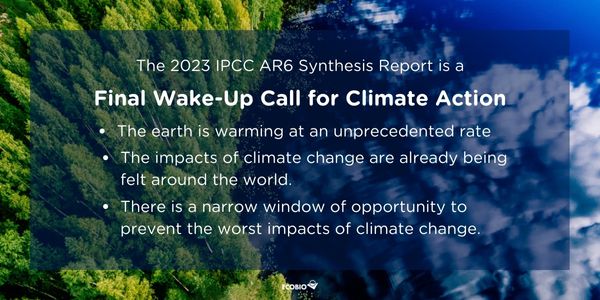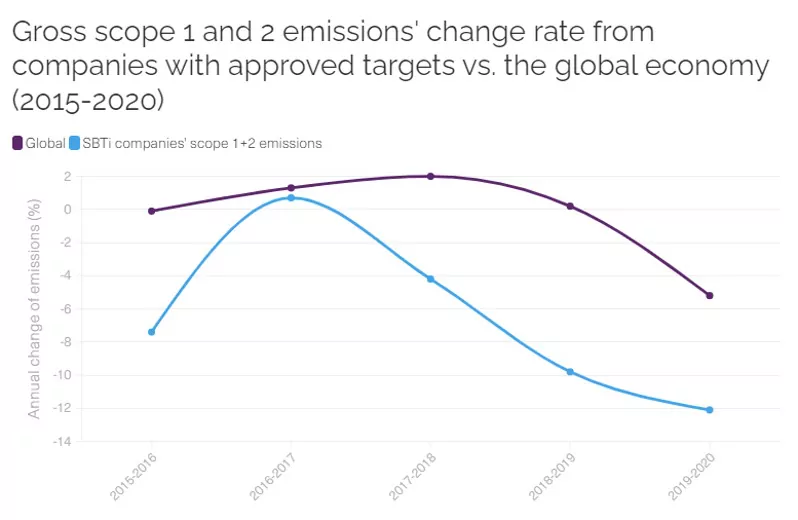The Intergovernmental Panel on Climate Change (IPCC) has released its latest report on the state of the planet’s climate “2023 IPCC AR6 Synthesis Report “. The report, which was compiled by hundreds of scientists from around the world, provides a stark warning about the urgent need to address the climate crisis.
The report concludes that human activity, particularly the burning of fossil fuels, is driving unprecedented changes in the Earth’s climate system, resulting in rising temperatures, sea level rise, and more frequent and intense weather events. These changes significantly impact ecosystems, food systems, and human health and well-being.
The 2023 IPCC AR6 Synthesis Report – Key Findings:
The earth is warming at an unprecedented rate
Human influence has warmed the climate at an unprecedented rate in the 21st century, and the current warming is highly likely to exceed 1.5°C above pre-industrial levels in the next two decades. Limiting global warming to 1.5°C above pre-industrial levels will require rapid, far-reaching, and unprecedented changes in all aspects of society, including the energy, land, and industrial sectors.
Immediate, rapid, and large-scale reductions in greenhouse gas emissions are needed to limit global warming to 1.5°C and mitigate the worst impacts of climate change. Adapting to the impacts of climate change is also essential, particularly for vulnerable communities and ecosystems.
The impacts of climate change are already being felt around the world.
The report highlights that climate change is not some far-off threat, but rather a present-day reality that is already having significant impacts on people and the planet. These impacts include more frequent and severe heatwaves, droughts, floods, and wildfires, as well as rising sea levels and ocean acidification.
There is a narrow window of opportunity to prevent the worst impacts of climate change.
Despite the bleak picture painted by the report, there is still hope. The report notes that we still have a narrow window of opportunity to prevent the worst impacts of climate change. However, this will require immediate and decisive action from governments, businesses, and individuals around the world.
The message of the IPCC report is clear for business managers like you
One of the report’s key messages is that the world is already experiencing the impacts of climate change which will only worsen in the coming decades, even if we take immediate and ambitious action to reduce greenhouse gas emissions.
However, the report also emphasises that the worst impacts of climate change can still be avoided if we act quickly and decisively to limit global warming to 1.5°C above pre-industrial levels. For the business sector, this means that management must prioritise sustainability and invest in renewable energy and low-carbon technologies.
For sustainable business operations, it is essential to conduct a comprehensive risk assessment for adapting to climate change.
- Reducing emissions is an absolute requirement for a company’s business operations and throughout the value chain (scope 1, 2, 3). It is recommended that corporate management set science-based climate goals on their agenda already this spring.
- Considering biodiversity alongside climate goals is equally important in developing a company’s sustainability strategy. Companies should identify how their operations affect biodiversity and make a plan to minimise those impacts.
Lastly, the scientific evidence presented in the IPCC report reinforces the ambitious requirements already adopted by the EU for complying with the climate goals of the Paris Agreement. Limiting global warming to 1.5 degrees Celsius also requires companies to take action to reduce emissions across all economic sectors.
The IPCC report is a wake-up call for all of us
We must act now to address the climate crisis before it’s too late. Here are some things you can do to help:
- Reduce your company’s carbon footprint by investing in energy-efficient technologies, using renewable energy sources, and implementing sustainable business practices.
- Support political candidates and policies prioritising climate action and promoting a sustainable business environment.
- Join a local climate organization or advocacy group to collaborate with like-minded businesses and individuals and advance the movement for climate justice.
- Educate your employees and customers on the importance of sustainable practices and the impact of climate change and encourage them to adopt environmentally responsible behaviours.
- Take part in industry-wide initiatives to reduce carbon emissions and promote sustainable business practices, such as participating in carbon markets or joining industry associations dedicated to climate action. Such as Science-based targets.
Together, we can create a sustainable and just future for ourselves and future generations.
To continue this conversation, send us an email via the form below.
Writer: Terhi Valtonen, Senior sustainability consultant, M.sc. (Admin)





